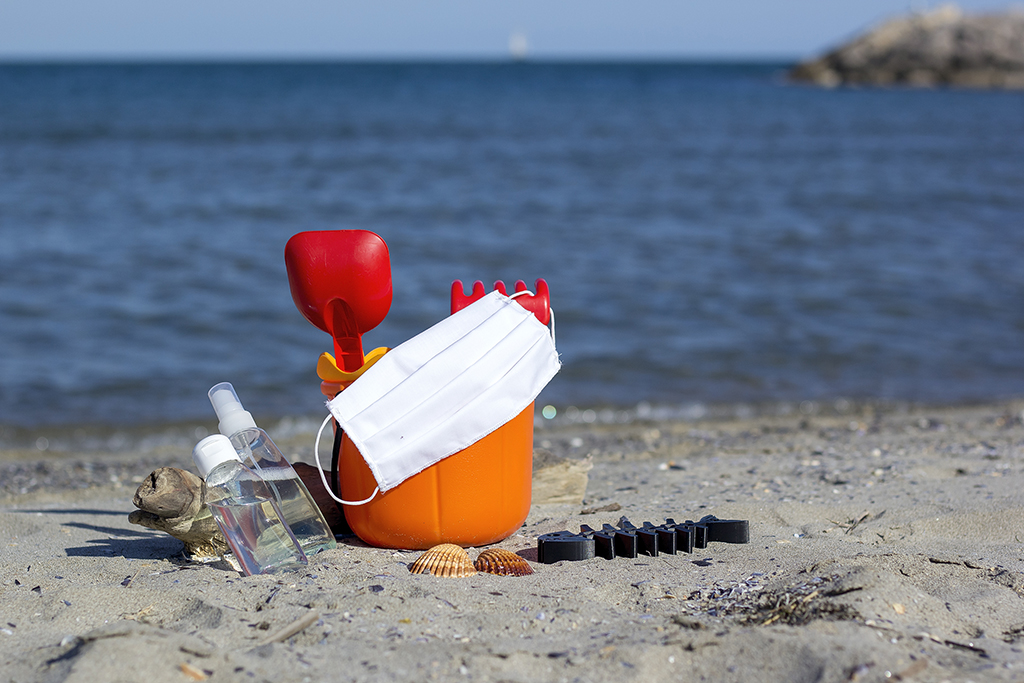Community
10 Summer Safety Tips from the Experts at Spectrum Health

June 10, 2020
10 Summer Safety Tips from the Experts at Spectrum Health
As Michigan’s Stay Home Stay Safe order comes to an end and life begins to resume some sense of normalcy, Spectrum Health’s infectious disease doctors offer tips and advice on how to avoid a resurgence of COVID-19.
A key thing to remember is that outdoor activities in general are safer than indoor activities because of better air circulation and the ease of maintaining social distance. If your activities involve family and friends, try to keep your social circle tight and limited to those you believe also are being cautious. The wider your social circle, the more likely you are to be exposed.
- Dining at home with friends
A dinner at home with friends poses a low to medium risk if you eat outdoors and keep the numbers low. Think about spacing your guests out and not sharing appetizers. The risk increases if you move the meal indoors and if your party of 4 or 6 grows much larger. Risk also grows if your guests stick around for several hours. - Going to a public pool/hitting the beach
If you practice social distancing, this is an activity that poses a low risk. You are unlikely to contract the virus in the water. But steer clear if your beach or pool of choice is crowded. - Staying in a hotel
If you avoid crowded lobbies and breakfast buffets, the risk is low. Wear a mask when checking in and leaving your room. - Going camping
Enjoy the outdoors with low risk, particularly if you camp as a family unit. Incorporating other friends or families increases the risk so practice social distancing as much as possible. - Using a public restroom
Public restrooms present a low to medium risk, particularly if they are cleaned often. Larger restrooms are likely to have better ventilation. As always, wash your hands and avoid touching many surfaces. - Dining in a restaurant
Just like dining at home with friends, outdoor dining is less risky than indoor dining. Dining indoors, particularly if the restaurant is busy, presents a medium to high risk due to concerns about poor ventilation and proximity to others. Servers should wear masks but it’s impossible for diners to do so for the duration of their visit. Think about carry-out instead. - Visiting an amusement park
Amusement parks are synonymous with large crowds. Visiting one poses a high risk. - Attending day camps/visiting playgrounds
Outdoor activities in small groups pose a relatively low risk. Ask camp organizers how they will enforce social distancing and be sure to pack your own sack lunch. Be sure to wash your hands or use hand sanitizer after a visit to a playground. - Hitting the bars
Going to a bar is a high risk activity due to crowds, loud talking (emits more droplets), your inability to wear a mask and the difficulty of social distancing. Bars also have lots of high-touch surfaces and patrons aren’t likely to be frequently sanitizing or washing their hands. - Weekend trip with another family
A weekend away with another family poses a medium risk. The risk level varies depending upon the size of the group and how much time everyone spends in close proximity to others. Reduce the risk by connecting with families who have been exercising caution.
###
People are at the heart of everything we do, and the inspiration for our legacy of outstanding outcomes, innovation, strong community partnerships, philanthropy and transparency. Corewell Health is a not-for-profit health system that provides health care and coverage with an exceptional team of 60,000+ dedicated people—including more than 11,500 physicians and advanced practice providers and more than 15,000 nurses providing care and services in 21 hospitals, 300+ outpatient locations and several post-acute facilities—and Priority Health, a provider-sponsored health plan serving more than 1.3 million members. Through experience and collaboration, we are reimagining a better, more equitable model of health and wellness. For more information, visit corewellhealth.org.

